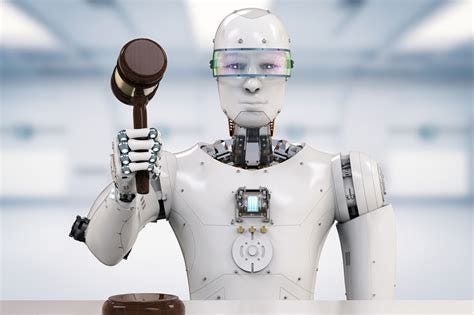Enforce the Law With No Bias? Use Robots! Oops, Wait…
The 2008 remake of the 1951 film, The Day the Earth Stood Still, explores the concept.
Since we’ve been reviewing the Matrix movies, I thought I would review another sci-fi film starring Keanu Reeves, The Day the Earth Stood Still, (2008) which was a remake of a film of the same name which came out in 1951. However, as I was watching this train wreck, even by remake standards, I thought I ought to watch the original for a little extra context. What I saw compelled me to write this review.
Here’s a trailer for the original, which gives some sense of the period:
Now the new version:
The movie opens with a spaceship landing and the alien, Klaatu, and his robot, Gort, stepping out of the ship. Klaatu is shot and Gort destroys a few guns, a tank, and some cannons. Klaatu tells Gort to knock it off, and the robot shuts down.
In the hospital, the Secretary of State comes to visit Klaatu, and the alien insists on speaking with the representatives of all the nations of earth. The Secretary of State gets a hold of the President of the United States who says this is an impossible task so and the alien escapes to see what he can learn about the people, rather than wasting his time with politicians. He is enlightened after all.
What I like about this movie is that it is a slow burn. It takes its time showing the alien learning about our ways. It is a tour of the human condition. During this tour, the alien Klaatu comes across Professor Barnhardt, and decides the best way to communicate his message to the world is through gathering the nations’ scientists. After all, scientists are always unbiased. They would never disregard obvious facts because they are concerned about the implications, right? The scientism is strong in this film.
Eventually, the military find Klaatu and shoot him… again. But Gort rescues Klaatu just in time to give his message for the gathering of scientists, and here is where the movie falls apart.
It turns out that humanity is on the brink of space exploration. We will soon come across other races. The other aliens don’t care how humans behave on our own planet. But if we bring our violent ways to the other systems, we’re going to pay. Klaatu explains that there must be security. He says there must be security for all or there is security for none.
Anyone who’s read American history hears the words of Benjamin Franklin screaming in their heads. “Those who would give up essential Liberty, to purchase a little temporary Safety, deserve neither Liberty nor Safety.” The writers were thinking the same thing, because Klaatu follows this statement by saying that this doesn’t require giving up their freedom, except the freedom to act irresponsibly.
But who decides what’s irresponsible? Well, Klaatu cites the fact that people have used policemen and the aliens do the same thing. It turns out the aliens have invented a race of robots like Gort, to enforce laws regarding violence… by using violence. This has freed the humans to pursue other things. So, we’ve achieved peace… through fear.
Now, usually this is a trope reserved for villains, but the movie wants you to believe this is a good idea. Throughout the speech, the camera keeps showing the Professor, and I thought he was going to swoon.
Robots keeping the peace is terrifying. For one thing, a robot can’t read a situation, it can only read programing. How can a person program a robot for nuance? Can it judge a case of self-defense? Can a robot hold court? Can it weigh and measure the countless variables in a given situation?
If a robot can only read a program, then at best, its ability to weigh and measure a scenario is limited to the imagination of the programmer. How can it take competing information and give a verdict? Furthermore, how would the robot tell if two people are lying? Is it going to measure their vitals? And how can a robot tell if someone is lying if everyone’s heart is throbbing because this polygraph machine has a laser?
The robots aren’t in charge at all. Rather, it’s the programmers who hold the power. Assuming, one could encode a law, then that law is going to match the sentiments of the robot’s creator. What are these programmers supposed to do? Study the law as well? And if they did so, then the programmers would be at the mercy of the whims of the politicians. In that case, we’d have a race of robots run by a bunch of bureaucrats. I don’t know about you but that sure sounds like recipe for world peace to me.
The error comes from assuming the robots can be impartial. But robots are made by men… or aliens. Even if the robots were somehow to become self-replicating, in the end, the first cause would always be a being with opinions. He who controls the robots would control the galaxy. It’s a shame such a sloppy idea had to infiltrate an otherwise good movie which I would highly recommend — unlike it’s remake which is a complete disaster, and I will take a look at the colossal flop next time.


